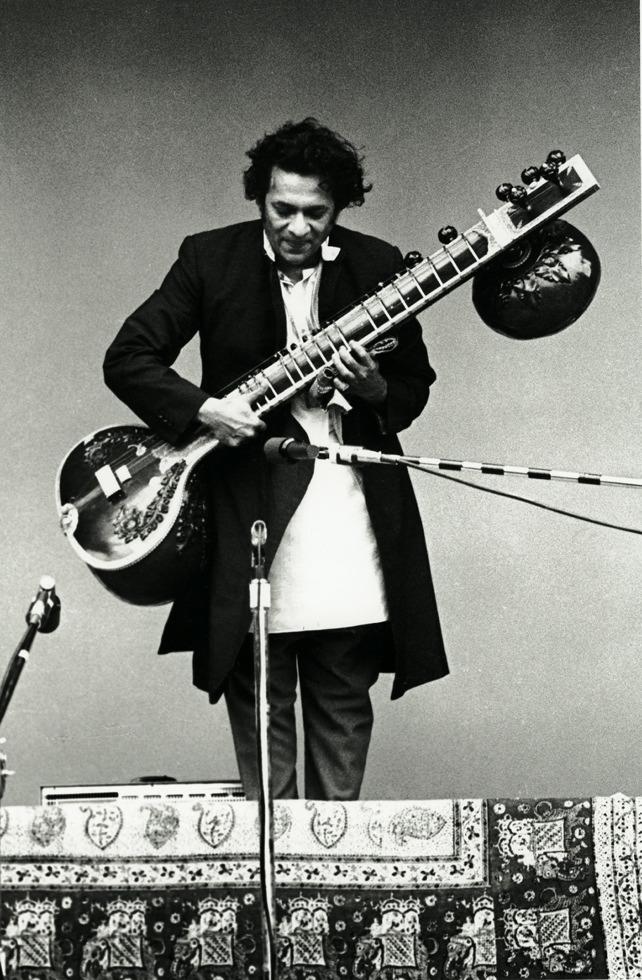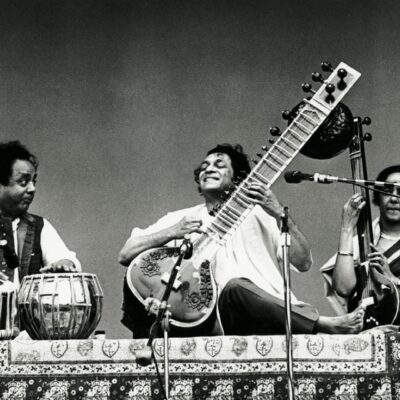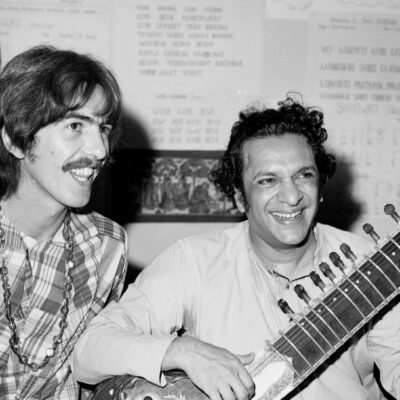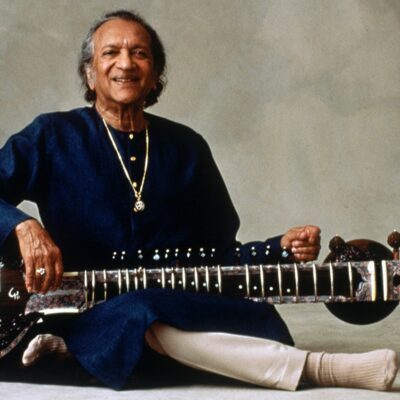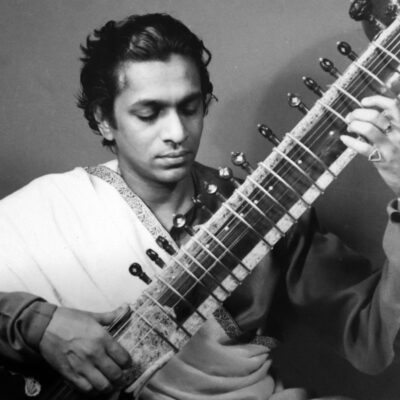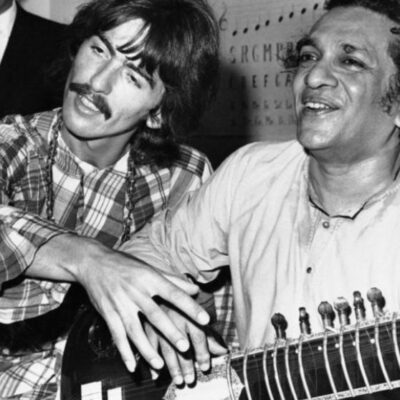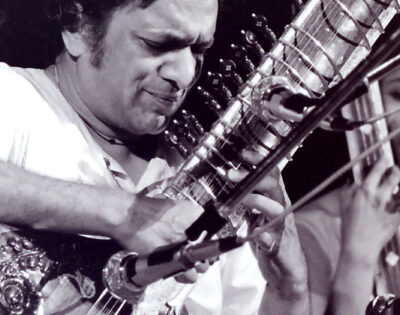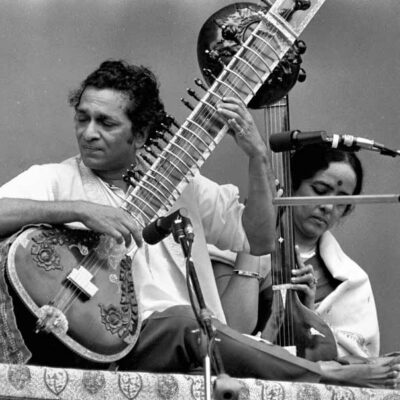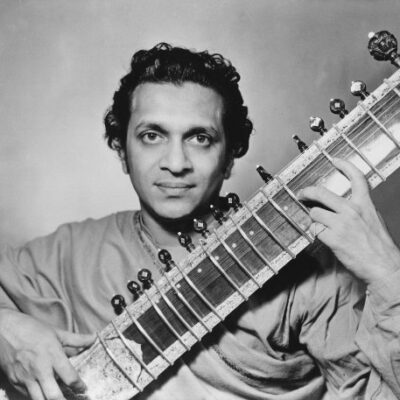RAVI SHANKAR – EN
Ravi Shankar
(Ravindra Shankar Chowdhury)
Born April 7, 1920, Benares [now Varanasi], India
Died December 11, 2012, San Diego, California, U.S.
Indian musician, player of the sitar, composer, and founder of the National Orchestra of India, who was influential in stimulating Western appreciation of Indian music.
Born into a Bengali Brahman (highest social class in Hindu tradition) family, Shankar spent most of his youth studying music and dance and touring extensively in India and Europe with his brother Uday’s dance troupe. At age 18 Shankar gave up dancing, and for the next seven years he studied the sitar
“My dad’s name, Ravi, translates as ‘sun’ in Sanskrit and I was writing it in those months where he wasn’t well and I didn’t quite feel ready to let go of him,” Anoushka says. “So I was just speaking about that idea of not wanting the sun to set yet. And it was beyond perfect to have Norah sing the words.”
After serving as the director of All-India Radio, he began to tour India and the United States. In the process, he collaborated with many notable musicians, including George Harrison and Philip Glass. He even collaborated with the famous band ‘The Beatles’, popularizing Sitar to a greater extent. Honored with three highest Indian civilian awards
“He’s famous for working with Yehudi Menuhin, Zubin Mehta, but for me the common theme running through that is that he was essentially playing Indian music,” Craske says. “He wasn’t a fusion artist who throws together two different forms; essentially, he was using different formats as ways of playing Indian music. It wasn’t just jamming aimlessly. He was very serious in that way.”
Ravi Shankar’s last recorded concert was a three-hour performance delivered on the eve of his 92nd birthday. It would become his musical farewell to his home country and to the cultural font of his life’s work, India. At the heart of the Live in Bangalore concert album are Sitar duets by the international elder of Indian classical music and his daughter and student, Anoushka Shankar. With his health failing in his final year, she describes how she could feel him passing on the torch.
